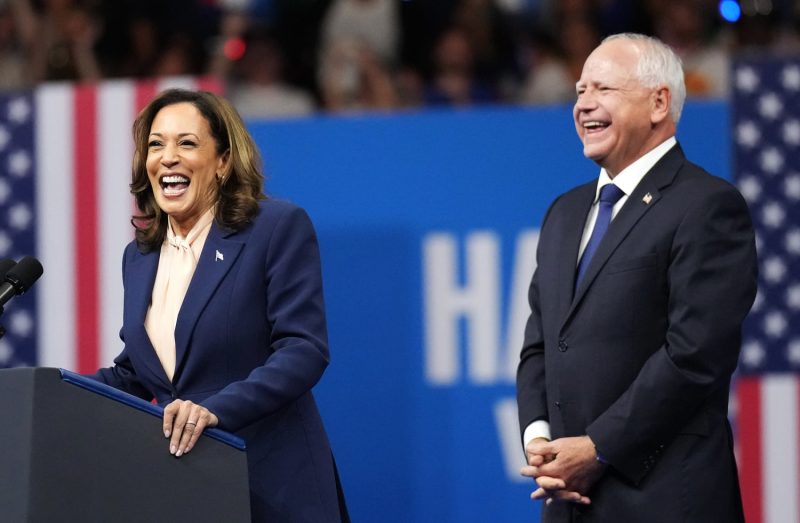
Local Teamsters Forge Their Own Path with Harris Endorsements Despite National Union’s Refusal
The endorsement of Kamala Harris by several local Teamsters stands out specifically because the national Teamsters union avoided supporting any candidate in the recent Presidential elections. Several local chapters of the influential labor union, the Teamsters, working across various industries in America from package delivery and freight transportation to food service and healthcare, have voiced their unequivocal support for Kamala Harris, breaking ranks with their national organization.
The Teamsters union, counting over 1.4 million members in its ranks, is an influential force in American labor and politics. The decision by the national organization not to endorse a presidential candidate in this election came as a surprise. Yet, individual local chapters of the union in key swing states such as Pennsylvania, Ohio, and Michigan, flouted the direction taken by their national organization and instead expressed their strong belief in Harris and what she stands for.
The endorsement of Harris by these pivotal state organizations was informed by her proven commitment and track-record in supporting workers’ rights, labor standards, job security, and fair pay. This was a major deciding factor for their decision, bypassing the silence from their national representative body.
The endorsement not only signifies the trust these local chapters place in Harris’s policies but also underlines the disunity among labor organizations in the country about the best candidate to represent their interests. This election has seen various labor unions and workers’ organizations show fragmented support for different candidates, attesting to the complex politics of labor representation in the U.S.
The local Teamsters groups appreciate Harris’s vocal support on many fronts such as healthcare reforms, climate change, and raising the minimum wage – issues that directly affect their constituents in positive ways. They believe that Harris’s policies and political philosophy align well with the interests of workers, ensuring they benefit from economic growth and retain their rights.
To further underline the significance of their endorsements, these labor groups have pledged to mobilize their members and resources in support of Harris’s presidential campaign. They aim to drive a large turnout of their members at the voting booths, and leverage their collective strength to influence the election results.
Such localized endorsement and show of support for Kamala Harris may sway key demographics in crucial battleground states. Moreover, it serves as a potential flashpoint as the fight for workers’ vote continues, highlighting labor unions’ power in influencing political outcomes and directing the national discourse.
In the wake of the endorsements, Harris has appreciated the local Teamsters groups for their trust in her leadership and pledged to fight for the rights of the working class. She believes that this endorsement emphasizes the need for strong union representation and the importance of collective bargaining.
While the national Teamsters union’s decision not to endorse any candidate has raised eyebrows, individual chapters of the labor union have stepped into exercising their independent judgment and political influence. The national union’s silence has created an opportunity for localized chapters to express their voice and choose to endorse candidates who best represent their interests.
Thus, in the throes of a significant election, these endorsements from the local Teamsters groups not only throws Harris into the spotlight but also underlines the evolving dynamics within the union itself. It symbolizes the divergent beliefs within the grouping and lays the foundation for a more democratized decision-making process within one of the most influential labor groups in America.
